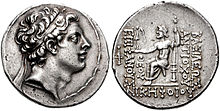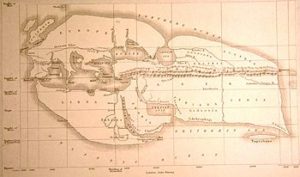January 3, 2016
Post #9
Dear Readers,
We are dedicated to the absolute co-equality and balance between men and women! Our premise is that God created us this way to be whole, complete, unified – as One, through one another, masculine and feminine. We are discussing how the Word of God as taught by Jesus of Nazareth was willfully or inadvertently misrepresented or misunderstood such that men came to believe they were somehow more equal.
This weblog, our pamphlets, study guides and other materials are inspired by Miguel’s book, The Word 2.0, a new biography of Jesus of Nazareth in his own words, based upon a single, unified timeline.
Whether or not you agree please “share” us with your friends, and be our “friend”!
You are reading one in a year-long series on the “Feminine-ist” teaching of Jesus of Nazareth.
~~~~~~~//~~~~~~~
God is One!
God is undifferentiated masculine and feminine energy in perfect balance, whole, complete, unified, and co-equal! God is neither male nor female, and yet both – inseparable! And yet God made each of us manifest male and female, man and woman, in God’s perfect likeness! Truly a state of grace.
How Adam’s actions brought about the fall from this state of grace is something we will discuss elsewhere. Suffice it to say that long before Jesus was born, men and women were already out of balance. In the more immediate sense of events which took place in Israel before Jesus was born, I found the Seleucid Greek invasion critically important because of the belief system we call “Hellenism” the Greeks forced on the children of Israel at that time.
It may not be especially well known today but the Seleucid Greeks from Syria outlawed our One True God! They forbade the worship of God under the penalty of death. Their King Antiochus IV Epiphanes (Antíochos D’ ho Epiphanḗs, “God Manifest”), believing he was god, decreed the people would have no other god before him.
Hellenism did cause divisions among the people though. On one hand those identifying with the Greek empire and culture could enrich certain elite Israelites, but on the other hand their man-worship violated God’s Law. This divided not only those who were “Hellenists”, their supporters and adherents, from those who were “Traditionalists“, but also, apparently, men from women. Why? Because it is also in the nature of Hellenism that women be subordinate to men.
But our One True God was definitely not a Hellenist, right? Given that, we might characterize Jesus’ ministry as teaching men in particular about the Divine Balance of God’s Feminine and Masculine aspects – specifically “Feminine-ism“. I briefly outline some basic principles of Jesus of Nazareth’s life and ministry, as they are revealed in “The Word 2.0”:
1. Jesus was a “Traditional” Hebrew-Jewish teacher and Rabbi – to say the very least!
2. Jesus was not a “Hellenist” in any sense of our understanding the word.
3. Jesus espoused and promoted that our One True God – the God of Israel, is a perfect co-equal balance of both masculine and feminine, as is reflected in all Creation.
4. Jesus said that we must love the Lord our God first and foremost, and then love one another as we love ourselves.
5. Jesus taught that love, beginning with God’s “Ruach HaKodesh” – the Breath of Life and Holy Spirit, as aspects of God’s Divine Feminine, is the only way that men can experience the Kingdom of God.
6. Jesus rejected the kind of egocentric, selfish, self-centered thinking and behavior of men that characterizes “Hellenism”.
We will discuss each of these points in much greater detail as we continue, and, look for my study guides they will soon also be available!
~~~~~~~//~~~~~~~
~~~~~~~//~~~~~~~
Greece and Rome had already been fighting for territory throughout the Middle-East for some time when the Revolt of the Maccabees ousted the Greek Hellenists from Israel. (Pages 36 – 38.) And it would yet be many years before the Romans would themselves invade Israel. The seeds of Hellenism as a belief system would however find fertile soil, germinate and take root during those years. Given that a certain elite of men at the pinnacle of Hellenism controlled and directed Greek focus, why would male elites elsewhere not find such power and control tempting?
In Israel, for example, such men might find it expedient to control the law’s interpretation, taxation policy or politics and economics rather than relying on Temple practice. Besides which they could ignore the laws concerning idolatry and having no other gods before our One True God – “man-worship”; worship of the typically naked male form.
Is it really that difficult to understand how such a belief system could be especially appealing to the male ego? Being elevated as they are to the peak of power and control? While at the same time dominating women? And how once so influenced, they might find their very motives and intentions realigning with its tenets over God’s? Even unconsciously? And how their thoughts, their words and their actions are affected? Their “fruit” as Jesus says?
When we say “unconsciously” that might include their very perception of their self-will? A lack of awareness to some extent of Hellenism’s influence over their various processes. But what of those Hellenists who would be conscious of the effect of their thoughts, words and actions on other men? Saul of Tarsus/Paul was a true Hellenist. We know from reading his writings, and those of whom he influenced that as a Jew, he struggled with his Hellenistic tendencies. His interpretations of God’s word and Jesus’ teachings are to say the least confusing, but in them we come to understand a man on a journey.
Unfortunately, in his day, in that age, his confusion seems to have caused confusion among fledgling believers wherever he went throughout Asia Minor. We will explore why this might be later, as well as its potential consequences, but for now let’s stop and consider whether Paul was the only man orbiting Jesus who struggled with his belief in God? His faith? The practice of Judaism in the “modern world” of his time? Indeed with his own masculinity? Whether or not they might be characterized as Hellenists? If you have not yet read “The Word 2.0”, please do and form your own opinions.
Before Saul/Paul, consider for example those men closest to Jesus, his disciples: “The names of the twelve Apostles are these: Simon, whom he also called Peter, and Andrew his brother. James, the son of Zebedee, and John his brother, whom Jesus called the Boanerges – the ‘sons of thunder’. Andrew, Philip, Bartholomew (Nathanael), and Matthew the Publican (Levi). Thomas. James, the son of Alpheus. Lebbeus whose surname was Thaddaeus (Jude). Simon called Zelotes (the Zealot), the Canaanite. And Judas Iscariot.” (Page 109.) As the book reveals, who among these men was unwavering in their faith? Did not experience doubt? Did not misunderstand the teachings?
Simon-Peter, perhaps the best known disciple and apostle, who was with Jesus pretty much from the beginning struggled every day with his faith. There are several excellent illustrations of his doubt, although his famous “three denials” is perhaps least understood. Or Thomas, for whom the expression “Doubting Thomas” is attributed, prompted Jesus to say, “Thomas, because you have seen me you have believed. Blessed are those who have not seen and yet have believed.” (Page 390.) There are of course many more such vignettes, not to mention other men Jesus met throughout his ministry. Was Simon-Peter a Hellenist? Most likely not. Certainly he was aware of Hellenism’s influence, and may have been tempted, but he seemed to find some balance in Jesus’ teachings.
So does a man’s doubt, or lack of faith, or fear even necessarily mean he has Hellenist tendencies today? Or is a Hellenist – even unknowingly? Excellent question. We understand it appeals to a man’s ego and self-will. Were it not that for over 2,300 years Hellenism has become so deeply ingrained in religion, society and culture from India through the Middle-East, northern Africa, Europe and the Americas, perhaps this would be an easier question to answer. We know it was especially prevalent and influential in Israel for those 300 or so years from the invasion by Greece to her final destruction by the Romans. Even in this day and age how likely is it a man would even question the extent to which he might be influenced by Hellenistic teachings?
By contrast, again and again Jesus alludes to this world men had constructed – this Hellenistic world that dominated Israel throughout his life. A traditionalist, he was able resist its influence: “In the world you will have tribulation – but be of good cheer – I have overcome the world.” (Page 351.) Jesus never calls out Hellenism specifically, instead he speaks to how men’s lack of faith manifests in their words and actions. He also teaches about their arrogance, egoic selfishness, and their need for possessions, recognition, and power. All hallmarks of Hellenism.
Still, is it the mere existence of Hellenism that undermines men’s faith? An alternative? Arrogance, egocentricity and selfishness are masculine traits regardless. Perhaps Hellenism is like the temptation Jesus talks of? It preys upon their fears promising them whatever they wish. Or does it really just amplify men’s inherent desires, urges and tendencies? If, as Jesus reiterates again and again, men are known by their fruit, which of their fruit should we focus our attention? For the sake of these conversations, we will use their treatment of women – be it as subordinates or co-equals, that distinguish them.
Do men have to be Hellenists to demonstrate Hellenist tendencies? Would they be conscious of those tendencies in any event?
As men, do we consider women our co-equals?
Mazel Tov!
Miguel







